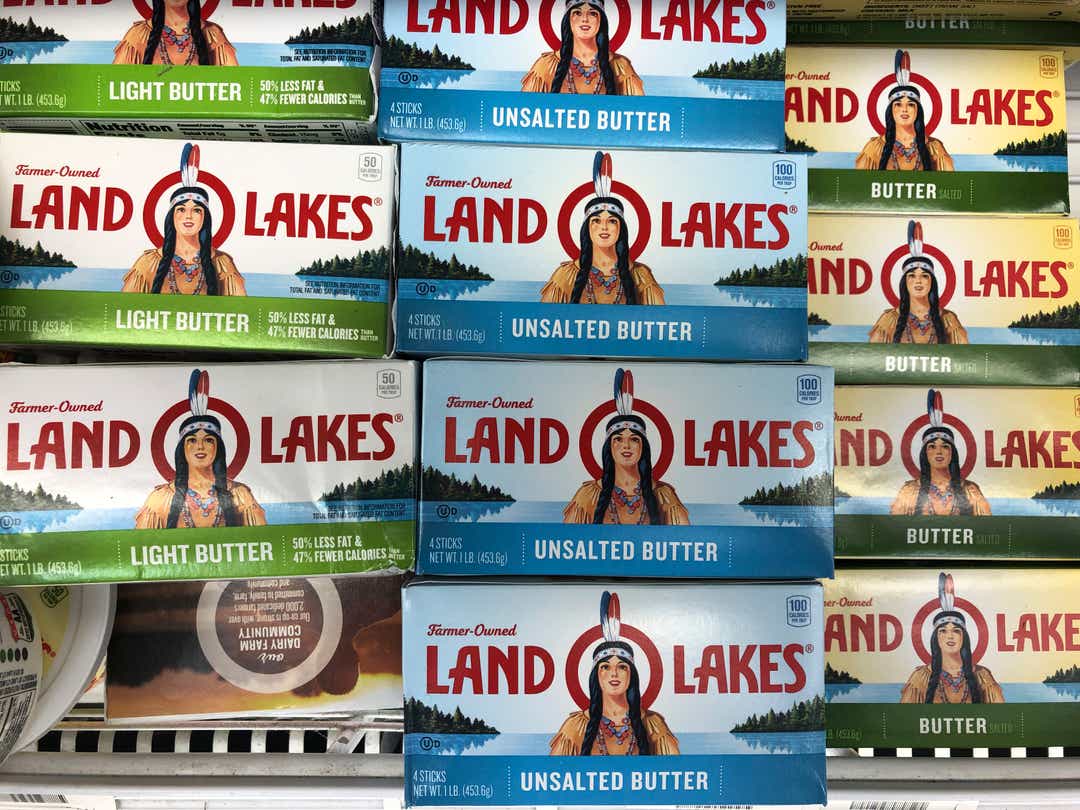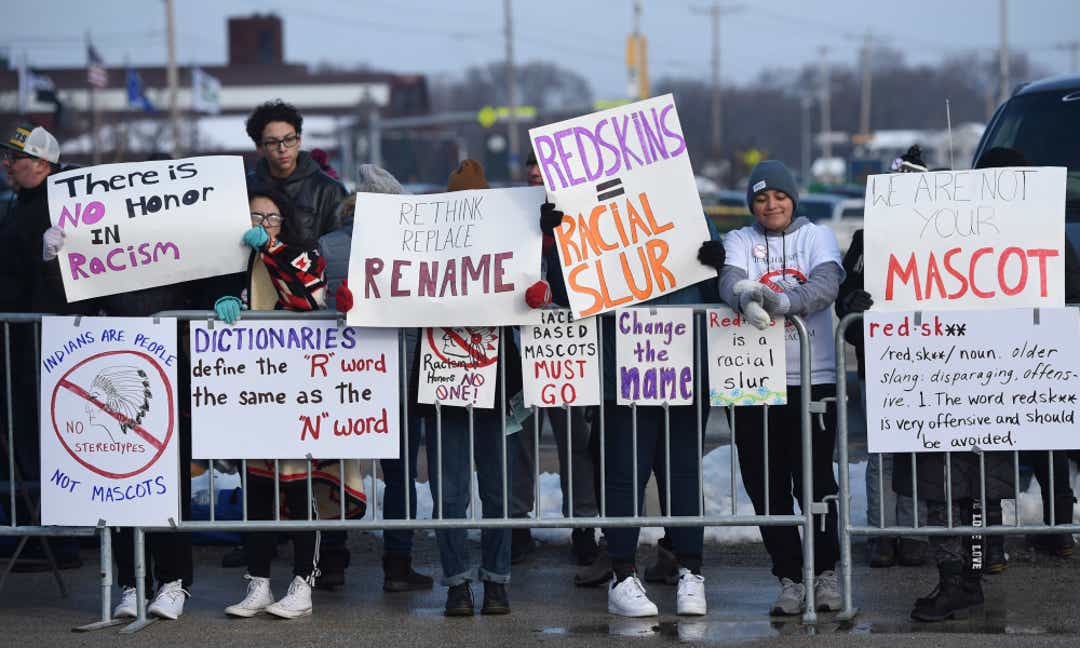After decades of criticism for how their products have perpetuated racial stereotypes, four iconic brands announced change was coming within hours of one another.
First, Quaker Oats said it would retire Aunt Jemima from packaging on its brand of syrup and pancake mixes, acknowledging its prior work to update the character was "not enough." Then in rapid succession Wednesday, the owners of Uncle Ben's, Mrs. Butterworth's and Cream of Wheat said their products' packaging also would be reviewed.
The rebranding announcements – considered long overdue by experts, historians and some consumers – come at a time when companies face increasing pressure to boost diversity efforts and combat racism in the wake of the death of George Floyd in Minneapolis.
On Friday, Dreyer’s Grand Ice Cream said in a statement to USA TODAY that its Eskimo Pie brand would be renamed.
Save better, spend better: Money tips and advice delivered right to your inbox. Sign up here
"I think a lot of these brands really need to look at the contributions, or lack thereof, that have contributed to a lot of the systemic issues," said Mike Jackson, founder of Los Angeles-based 2050 Marketing. "This is a real movement and this one feels really, really different.”
Dan Gasby, a former TV producer who in 2017 started a Change.org petition asking PepsiCo, which owns Quaker Oats, to replace Aunt Jemima with his now-late wife TV personality B. Smith, one of the country's first high-profile black models who went on to become an author, restaurateur and lifestyle maven.
Black Lives Matter masks allowed: Taco Bell says employees can wear Black Lives Matter masks after a worker was fired for wearing one
First Aunt Jemima, now Uncle Ben's: Rice brand plans to 'evolve' and change 'visual brand identity'
Gasby says PepsiCo shrugged off his request. "There wasn't that critical mass of indignation, a sheer awareness of how bad it is.
"Now we know how bad it is," Gasby said. "There's a tectonic shift that is taking place and what the proverbial straw that breaks the camel's back is watching a man being executed in slow motion and having that in your face."
The decision to rename and repackage Aunt Jemima came a day after a TikTok video from singer Kirby titled “How To Make A Non Racist Breakfast” went viral.
In the short video, Kirby gives a history lesson of the 131-year-old brand, noting the name means “slave mammy on the plantation south” and the brand’s white founder got the name after attending a "minstrel show.”
“Black lives matter, people,” Kirby said as she dumps a box of the pancake mix in the sink. “Even over breakfast.”
Some associate the shape of bottles of Mrs. Butterworth’s syrup with the "Mammy," a racial caricature of Black women rooted in the history of slavery in the United States.
Cream of Wheat has long been criticized for the use of a grinning Black chef on its packaging since the 1890s. The mascot on early boxes was known as Rastus, a caricature of a jolly, former slave often featured in minstrel shows.
David Pilgrim, the director and founder of the Jim Crow Museum of Racist Memorabilia at Ferris State University in Big Rapids, Michigan, said he was "pleasantly surprised" by the announcements, which he called powerful, symbolic gestures.
“One of the things these all share is this idea of reducing Black people to happy servants whose greatest joy in life is to serve white people," Pilgrim said. "When we reduce people to that one dimension, it both shapes and reflects attitudes that people have about Black people.”
The museum, temporarily closed because of COVID-19, houses around 10,000 items Pilgrim calls "racist objects," which are used to teach tolerance.
“My life's work is to convince people to voluntarily get rid of them or not purchase them in the first place," Pilgrim said. “These are the kind of objects that should either be in a museum or a garbage can."
Eskimo Pie latest to announce change
Eskimo Pie, America's first chocolate-covered ice cream bar, was introduced in 1921 and today still features an "Eskimo" character on the box.
According to the Alaska Native Language Center, while the word "Eskimo" is commonly used in Alaska to refer to Inuit and Yupik people, it's considered derogatory and was said to mean "eater of raw meat."
Elizabell Marquez, a spokesperson for the Dreyer's ice cream, said in a statement to USA TODAY that the company has "been reviewing our Eskimo Pie business for some time and will be changing the brand name and marketing."
"We are committed to being a part of the solution on racial equality, and recognize the term is derogatory," Marquez said. "This move is part of a larger review to ensure our company and brands reflect our people values."
Miss Chiquita and Sambo's
In the late 1960s, Frito-Lay introduced the Frito Bandito, a cartoon caricature sporting a gold tooth and sombrero and speaking with an exaggerated stereotypical imitation of Mexican accent. The company ditched the offensive cartoon in 1971 facing pressure from Hispanic groups.
The last remaining Sambo’s restaurant in Santa Barbara, California, announced this month that it would change its name, which conjures a racial slur stemming from the 1899 book "The Story of Little Black Sambo." A new name hasn't been announced yet.
“Our family has looked into our hearts and realize that we must be sensitive when others whom we respect make a strong appeal,” the restaurant, which was once a chain with more than 1,100 locations, said in a Facebook post. “So today we stand in solidarity with those seeking change and doing our part as best we can.“
In April, Land O'Lakes announced it was removing the Native American woman's illustration that adorned its packaging since 1928 and replaced it with "lands and lakes."
Land O'Lakes didn't mention the illustration when announcing the move but rather focused on the company being "a farmer-owned co-op" and the need to "better connect the men and women who grow our food with those who consume it."

Chiquita’s mascot, Miss Chiquita, started as an animated banana in 1944 drawn by cartoonist Dik Browne who created and illustrated comics including Hagar the Horrible, the brand says on its website, noting "live models and personalities" were hired to bring the "First Lady of Fruit" to life in 1944 with Elsa Miranda considered the most famous Miss Chiquita.
Since 1963, a "likeness of Miss Chiquita" has appeared on the brand’s blue stickers and she was “humanized” in 1987. Miss Chiquita was named one of the 10 "sexiest" mascots in 2019, Chiquita notes on its website.
Chiquita Banana has been criticized for perpetuating stereotypes of Latin Americans.
"Whether portrayed as a banana-woman in the original logo, or a human woman in the modern logo, Chiquita Banana presents sexualized and exoticized visions of Latin American women, and perpetuates stereotypical images of Latin America and the people who live there," the Food Empowerment Project, a sustainability non-profit, explains on its website. "Like Aunt Jemima and Uncle Ben, Chiquita’s logo is another way in which non-white bodies have been objectified and exploited."
Chiquita did not respond to USA TODAY's request for comment as to whether the company plans to make changes.
“Brands are in trouble if they aren't proactive in responding and looking internally at what they can individually do to assist in the elimination of the racial and economic inequalities," Jackson said.

Pressure on Washington Redskins, other teams
A prevalence of stereotypes in names and mascots of sports teams exists despite many calls for changes over the years.
In 2005, the American Psychological Association called for the immediate retirement of all Native American mascots, symbols, images and personalities by schools, colleges, universities, athletic teams and organizations. Fifteen years ago, the association based its position on research that shows the harmful effects of racial stereotyping and inaccurate racial portrayals.
In recent weeks, however, some teams from the high school level to major league sports have made statements about looking to change.
The Cleveland Indians baseball team, who last year removed the Chief Wahoo logo from its uniforms, said it was “committed to making a difference" and the Atlanta Braves said in a statement the organization opposes “any and all discriminatory acts, racism and injustice.”
The University of Florida says it will discontinue its "Gator Bait" cheer at sporting events because of the "horrific historic racist imagery associated with the phrase," the university's president Kent Fuchs wrote in a letter Thursday.
In a survey earlier this year, the University of California, Berkeley, found that at least half of more than 1,000 Native Americans surveyed were offended by the Washington Redskins football team's name and mascot.
Washington, D.C., Mayor Muriel Bowser said in a radio interview last week, “it’s past time for the team to deal with what offends so many people.”
Daniel Snyder, the team's owner, told USA TODAY in 2013 that he’d never consider changing the team name that many Native Americans and others believe is a racial slur.
"We will never change the name of the team," Snyder said at the time. “As a lifelong Redskins fan, and I think that the Redskins fans understand the great tradition and what it's all about and what it means."
President Barack Obama asked the team to change the name more than once. In 2015, he said it was time for sports teams to “break stereotypes" and praised Adidas for working with schools to rebrand Native American mascots and logos.
“I don’t know if Adidas made the same offer to a certain NFL team here in Washington,” he said at the 2015 White House Tribal Nations Conference. “But they might want to think about that as well.”
Redskins representatives did not respond to USA TODAY's request for comment as to whether a change would be considered now.
Pilgrim said while he was pleasantly surprised by Wednesday's announcements he would be stunned if the Redskins changed their mascots.
"I think this is one of those times in our culture where we are having conversations that aren't just words being exchanged,” Pilgrim said. “There is a kind of urgency to revisit these topics.”
Contributing: Dalvin Brown, Josh Rivera
Follow USA TODAY reporter Kelly Tyko on Twitter: @KellyTyko
Business - Latest - Google News
June 20, 2020 at 05:06AM
https://ift.tt/3dgW7jX
Eskimo Pie, Aunt Jemima, Uncle Ben's and Cream of Wheat are changing. Are the Washington Redskins next? - USA TODAY
Business - Latest - Google News
https://ift.tt/2Rx7A4Y
Bagikan Berita Ini















0 Response to "Eskimo Pie, Aunt Jemima, Uncle Ben's and Cream of Wheat are changing. Are the Washington Redskins next? - USA TODAY"
Post a Comment